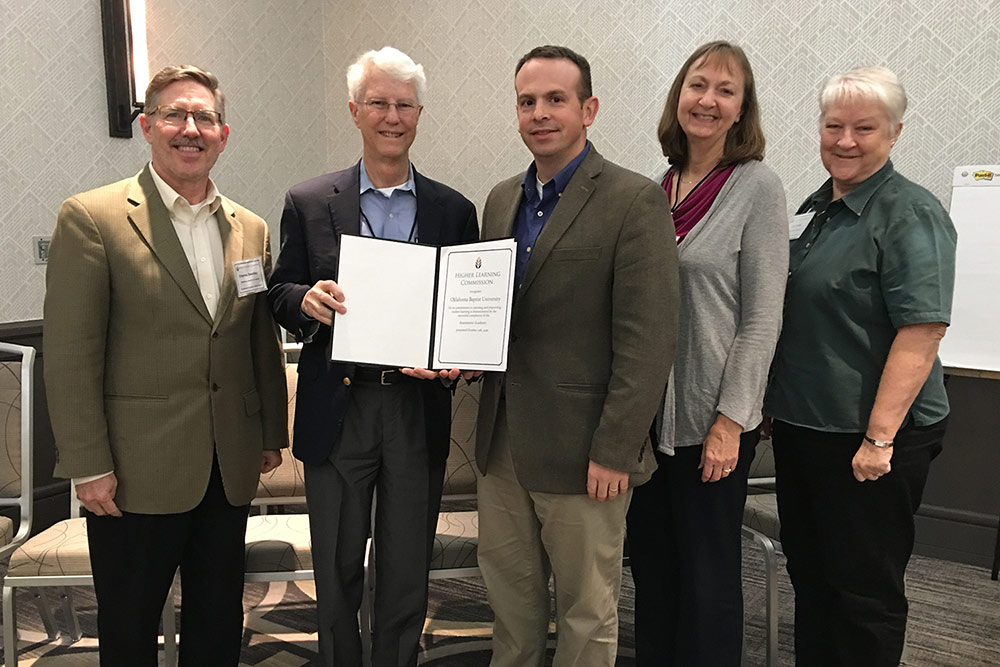OBU Team Presents Project at Assessment Academy Results Workshop
November 15, 2016
A team from Oklahoma Baptist University traveled to Chicago, Illinois, Oct. 12-13, to present the results of a five-year project during the Assessment Academy Results Workshop, hosted by the Higher Learning Commission.
Institutions progress through the Academy experience together as Academy cohorts. Each institution is assigned a primary mentor and a scholar who provide support for the duration of the Academy experience. Each institution builds an Academy team of five to eight individuals that should include members of the institution’s faculty, staff and administration.
OBU’s team includes Dr. Pam Robinson, dean of the college of humanities and social sciences and professor of education; Dr. Michael Travers, professor of English, division chair for language and literature, associate dean of the college of humanities and social sciences, and associate provost; Dr. Joy Turner, director of global mobilization; Dr. Charles Swadley, associate professor of English and Spanish; and Spence Spencer, director of assessment and institutional research.
Institutions in the Assessment Academy interact with their mentors and other institutions through the collaboration network. Throughout the four-year Academy, institutions use the collaboration network to provide project updates on the progress of their academy projects. The primary mentor and the scholar respond to the project updates with feedback.
OBU has worked to develop a consistent culture of assessment across all departments and all academic programs. The assessment academy was designed to help jumpstart the culture of assessment beginning with an emphasis on assessing the institution’s common core (general education), including an emphasis on spiritual formation.
OBU’s project is titled “Race for Excellence.” The assessment academy process has resulted in the assessment of student learning in all programs at all levels, with evidence that shows an improvement in student learning. OBU has used the momentum from the assessment academy project to launch a campus-wide assessment initiative, which is well underway toward developing a robust culture of assessment.
In a few short years, the institution has launched a comprehensive academic assessment program online, producing data that is being used to improve student learning. Among the specific, detailed accomplishments for the project is the development of a common scoring rubric for written communication, which is shared between the English and History faculty as they assess student learning in a portion of the Common Core (i.e., general education curriculum).
OBU’s capacity to assess student learning has grown exponentially since the beginning of the Assessment Academy project. The University has seen growth from regular, documented academic assessment taking place only in academic departments with specialized accreditation to analysis of every academic program in ’15’16. Each program has identified an opportunity for improvement and is implementing action plans for the ’16’17 academic year.
The clearest evidence that the Academy work is improving student learning can be seen in the increasing proficiency of students in written communication. This is demonstrable in the improvement within the same student population, and the comparison between classes. In other words, there was demonstrable improvement in the longitudinal data as well as in the year over year data.
OBU identified four student learning outcomes for a writing initiative as part of the Assessment Academy: expository and argumentative writing; research skills; critical thinking; and reading and writing charitably.
The Assessment Academy is a small piece of an emphasis to build a broader culture of assessment at Oklahoma Baptist University. Even as the team brought the Academy to a close, they began pursuing a largescale assessment initiative on campus.
